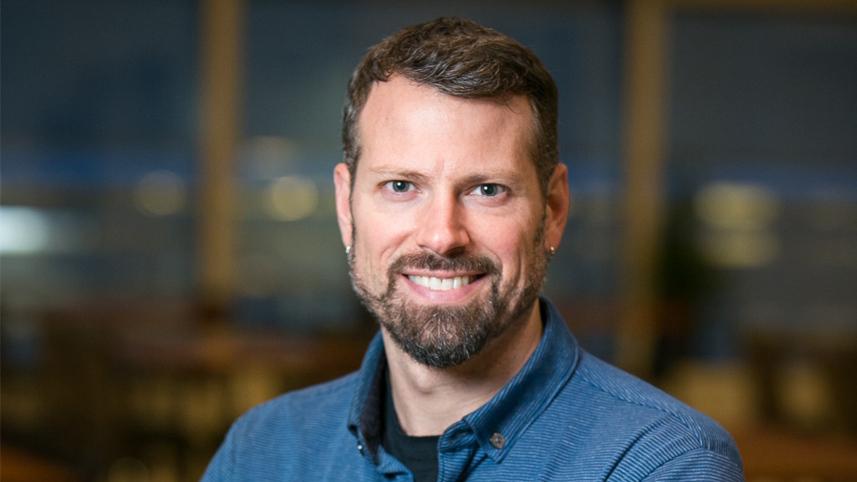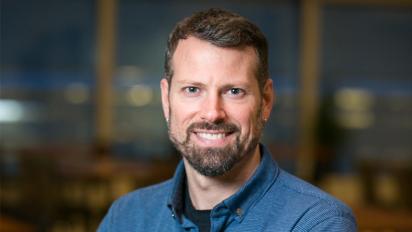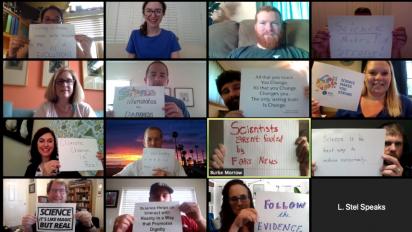Random Samples with Nathan H. Lents

Nathan H. Lents is Professor of Biology at John Jay College of the City University of New York, where he studies the recent evolution of the human genome in an effort to help understand the underpinnings of human uniqueness. He is also active in promoting the public understanding of evolution, which recently led to his tangling with a variety of creationists. He was interviewed while recovering from a mild case of COVID-19.
Glenn Branch: The title and subtitle of your latest book—Human Errors: A Panorama of Our Defects, from Broken Genes to Pointless Bones (2018)—accurately reflects the topic. But you’re not conducting a mere inventory. Can you summarize the message that we should take away from considering these defects?
Nathan Lents: The main message is that the human body, including our DNA, our cells, our organs, even our minds, have a fair number of, shall we say, quirks. These quirks reveal a body that is not the product of design, but rather a product of evolution, which is sloppy, aimless, and even cruel at times. The quirks are interesting to me for two reasons. First, they are useful for teaching biology, which is a big part of my day job. And second, if we probe them carefully enough, they reveal interesting things about our past. By understanding the forces that shaped our bodies and genes into their current form, we can live in better harmony with our bodies and make better decisions with our minds.
GB: After the publication of Human Errors, you were surprised, I understand, to discover that it was under attack by creationists, from young-earthers like Kent Hovind to “intelligent design” proponents like the folks at the Discovery Institute.
NL: Yes, I was completely caught off guard. I assumed they would ignore or laugh off the book, but instead they took great umbrage and wrote articles about me or the book almost daily for a while. In the end, I am happy that they did because it served to recruit me into the cause of the public defense of evolutionary science. As for their concerns, as you can imagine, they are quite incoherent. Many of the articles attempted to quibble with individual quirks that I discuss and spin them as good design instead. Other articles attempt to defend “intelligent design” (which I wasn’t aiming to attack anyway) basically by saying, “we never said perfect design!” And that was just the beginning of the contradictions. I was a little bewildered at first, attempting to counter each criticism, but I soon realized that this was a futile attempt because they would simply ignore my refutations and continue repeating debunked claims as if they were accepted science. What I was experiencing was a sort of Google bomb attempting to overwhelm the public space with their criticisms of the book. They don’t have a contained and coherent theory on which their claims rest, so typical academic argumentation doesn’t really work. Unmoored by the constraints of consistent logic, they use supports in one criticism, while arguing against those very supports somewhere else.
GB: You teamed up with Richard Lenski and S. Joshua Swamidass to review “intelligent design” proponent Michael Behe’s latest book Darwin Devolves (2019) for Science, writing that he “misrepresents theory and avoids evidence that challenges him.” I assume that the review didn’t win you any new friends at the Discovery Institute.
NL: It sure didn’t. Behe himself, despite his reputation of being mild-mannered, issued a very uncharacteristic rant on the same day the review came out, and then the whole team began to issue rebuttals. They used the same tactic as always: long meandering articles that squirt as much squid ink as possible without actually rebutting the point. But they showed their true colors after my friend Art Hunt and I exposed just how badly Behe botched his opening example of so-called “devolution” (a term that makes no sense in the first place), the evolution of polar bears. The dishonesty and desperation with which they reacted left even some of their supporters ceding the point publicly (and admitting their embarrassment privately). But rule #1 at the Discovery Institute is to never admit a mistake.
GB: You favorably reviewed Swamidass’s The Genealogical Adam and Eve (2019), which argues for the consistency of a historical Adam and Eve with the deliverances of evolutionary biology, and you’ve worked with Swamidass to promote the understanding of evolutionary biology among evangelical audiences. Why is this so important?
NL: As an atheist, I see the Adam and Eve story as myth, and the many parallels to other Mesopotamian myths throughout Genesis support that view. However, having grown up in the heartland, I know how important these stories are to millions of people. If they are forced to choose between adherence to their faith and acceptance of modern science, the majority will choose their faith. So Swamidass’s proposal for reading Genesis in a way that is compatible with evolutionary theory could represent an important alternative to that choice. Importantly, this is not bending science to accommodate religion; it’s reinterpreting religion to comport with science, which doesn’t yield to anyone’s sensibilities. The idea that Swamidass is defending is not a new one, but he is breathing new life into it after some surprising new data from population genetics taught us that you don’t have to go back very far in history to find universal human ancestors.
If this allows even some portion of the evangelical community to drop its resistance to evolutionary theory, a tremendous good will have come from this. When it comes to promoting a science-centered society, I favor an all-of-the-above approach. Jerry Coyne and others can fight religion head-on. I am trying a different and more compassionate approach, hoping to bring religious communities to a proper understanding of science without caring about their religious beliefs. If that happens—and trust me, it is happening—it will isolate the hard-core science deniers like Hovind and Ken Ham even more, and they will be left far outside the mainstream.
This article has been modified slightly from its original print format.





